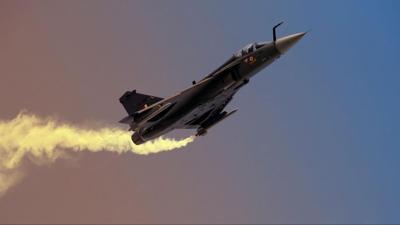India launched attacks on what it claimed were nine sites of "terrorist infrastructure" inside Pakistan, killing at least 26 people, including several children, and injuring 46 others; this occurred in a sharp escalation of hostilities between the two nuclear-armed neighbors, according to The Guardian, which reported extensively on the initial strikes. Pakistan called the strikes an "act of war" and claimed it had shot down several Indian air force jets.
Pakistan's Prime Minister Shehbaz Sharif has authorized the country's armed forces to undertake "corresponding actions" in retaliation. Since the attacks early Wednesday morning, heavy artillery fire has been reported by locals living along the Line of Control (LoC), the de facto border dividing the disputed Kashmir region. The Guardian notes that Indian officials reported at least 12 civilians killed in the shelling since Wednesday morning and 42 injured, including a woman and her three children. India's defense minister Rajnath Singh said his government had exercised its "right to respond" to avenge the killings of innocent civilians on Indian soil last month, claiming they targeted only those responsible for killing Indian innocents. Pakistan's National Security Committee rejected this explanation, stating the strikes were carried out "on the false pretext of the presence of imaginary terrorist camps" and deliberately targeted civilian infrastructure, including mosques.
Pakistan's military spokesperson Ahmed Sharif Chaudhry said there were 57 flights in the air when India launched its attack early Wednesday local time, putting thousands of passengers in danger, as reported by CNN in its detailed coverage of air traffic implications. Chaudhry shared images from flight-tracking site FlightRadar24 showing multiple planes in Pakistani airspace. The Pakistan Air Force reduced Indian jets to "smithereens," claimed Prime Minister Shehbaz Sharif in an address to the nation, stating: "In an hour-long air battle, our pilots blew up the jets of the enemy to smithereens." Pakistan claims to have shot down five Indian Air Force jets in retaliation for the strikes, including three elite French-made Rafales.
CNN noted that a high-ranking French intelligence official confirmed one Rafale fighter jet operated by the Indian Air Force was downed by Pakistan, marking the first time one of these sophisticated French-made warplanes has been lost in combat. The death toll in Pakistan and Pakistan-administered Kashmir has risen to 31, with 57 injured, according to military spokesperson Ahmed Sharif Chaudhry. Pakistan's president and prime minister attended the funeral of a seven-year-old son of an army colonel killed in the Indian strikes, with Sharif condemning India's "deliberate targeting of civilians" as a "reprehensible act of cowardice."
The overnight attack has rattled Pakistan, a nation of more than 240 million people, which had braced for Indian military action for weeks but had not anticipated the strikes would reach its heartland, according to The Washington Post, which analyzed the unprecedented nature of these strikes. At least 16 of the victims were killed in Pakistan's Punjab, the country's most populous and wealthiest province, marking the first such Indian attack on Punjab in more than half a century. Pakistan's Defense Minister Khawaja Asif hinted that Pakistan might be willing to de-escalate, telling Bloomberg TV: "If India backs down, we will definitely wrap up these things." The Washington Post reports that after the Wednesday strikes, Pakistan's military reported 24 "impacts" across six locations: Ahmedpur East, Muridke and Sialkot in Punjab; and Kotli, Bagh and Muzaffarabad in Pakistani-administered Kashmir.
Analysts warned that escalation risks are much higher than during previous confrontations. "The Pakistani leadership will feel like they have legitimate grounds to respond to India in a fairly big manner," said South Asia analyst Asfandyar Mir, noting that targeting Punjab significantly raises the stakes because "it's the heartland of the country." As countries around the world called for de-escalation, U.S. President Donald Trump offered to help: "It's so terrible. They've gone tit for tat, so hopefully they can stop now," adding, "if I can do anything to help, I will be there."







(0) comments
Welcome to the discussion.
Log In
Keep it Clean. Please avoid obscene, vulgar, lewd, racist or sexually-oriented language.
PLEASE TURN OFF YOUR CAPS LOCK.
Don't Threaten. Threats of harming another person will not be tolerated.
Be Truthful. Don't knowingly lie about anyone or anything.
Be Nice. No racism, sexism or any sort of -ism that is degrading to another person.
Be Proactive. Use the 'Report' link on each comment to let us know of abusive posts.
Share with Us. We'd love to hear eyewitness accounts, the history behind an article.